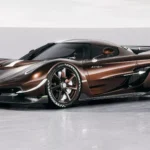A significant debate is emerging in Germany regarding fuel choices for gasoline cars. While most drivers currently opt for the more expensive Super E5, the ADAC, Germany’s largest automobile club, is strongly advocating for increased adoption of the cheaper and more environmentally friendly Super E10.
This push aligns with the interests of fuel station operators, who seek greater flexibility and space for newer, greener alternatives at the pump.
The Push for Super E10: Why Now?
Despite the clear benefits, Super E10 faces an uphill battle for widespread acceptance among German drivers.
ADAC’s Call for Political Action
ADAC President Christian Reinicke is leading the charge for E10. He explicitly calls on politicians to “promote the use of Super E10.” Reinicke emphasizes that most cars built from 2011 onwards are fully compatible with E10, which can contain up to ten percent bioethanol. “Despite this,” he notes, “many people unnecessarily fill up with the more expensive and more climate-damaging Super E5 in case of doubt.” This reluctance directly contradicts environmental goals and costs consumers more money.
Challenging Current Regulations
Currently, fuel stations in Germany are mandated to offer E5, which contains a maximum of five percent bioethanol. Reinicke criticizes this obligation, stating, “That no longer makes sense.” He proposes a clear first step: this obligation should shift to Super E10. If this initial measure isn’t sufficient, Reinicke suggests that “further, potentially tougher steps will have to be considered.”
While he doesn’t explicitly mention a ban on E5, he doesn’t rule it out either, leaving open the possibility of more stringent regulations in the future. He also stresses the need for “further climate-friendly alternatives” to find space at fuel stations and gain consumer acceptance.
E10’s Market Share and Price Advantage
Despite its environmental and economic benefits, E10’s adoption rate in Germany remains surprisingly low.
Current Fuel Consumption Trends
Figures from Germany’s Federal Office for Economic Affairs and Export Control, which closely mirror fuel sales, show a clear preference for E5. Last year, E5 accounted for 67.5 percent of domestic gasoline deliveries. In contrast, E10 represented only 27.4 percent, and Super Plus made up about 5.1 percent. This indicates that the share of E10 is growing only minimally, having been at 26.4 percent in 2023.
The Price Incentive
The price difference between E5 and E10 is often significant. E10 is frequently six cents cheaper per liter. This price advantage sometimes helps its adoption. For instance, the extremely high fuel prices experienced in 2022 led to a noticeable increase in E10’s share. In 2020, E10 accounted for only 13.9 percent of sales, demonstrating how economic factors can influence consumer behavior.
International Precedents and Industry Support
Germany is not alone in its considerations regarding E10, and industry bodies are largely supportive of the ADAC’s stance.
Austria as a Role Model
Reinicke points to countries like Austria as a successful example. In Austria, there is no longer any obligation to offer E5, and he notes, “there are no problems there either.” This suggests that removing the E5 mandate would not disrupt the market or inconvenience drivers. Austria’s experience provides a practical demonstration of how a market can adapt to a shift towards E10 without major issues.
Fuel Station Operators Agree
The ADAC’s plea to remove the E5 obligation finds strong support from fuel station operators. The Federal Association of Free Fuel Stations (bft), for example, states that since “the fuel type gasoline E5 is no longer technically relevant for engines, it would be time for a free market in fuel sales.” Daniel Kaddik, managing director of bft, emphasizes that “the fuel stations and the customers must decide which product they want.”
He adds that politicians should have a genuine interest in E10 due to its CO2 savings. Kaddik assures consumers that “fuel stations where E5 continues to be in high demand will certainly continue to offer E5. No one needs to worry about that.”
Creating Space for New Fuels
The bft also highlights a practical benefit of removing the E5 mandate: it would create vital space for newer, more climate-friendly fuels. This includes fuels like HVO, a renewable diesel alternative. Kaddik explains that the current “protective fuel type E5 ties up tank capacities and requires massive investments if HVO is to be introduced.”
The Fuels and Energy Industry Association, representing major players in the mineral oil industry and branded fuel station chains, also supports dropping the E5 obligation. They believe this change would give fuel station operators “greater flexibility to respond to changing customer needs and to offer innovative and climate-friendly fuels in the future.” They reiterate that the vast majority of vehicles can safely use Super E10.







